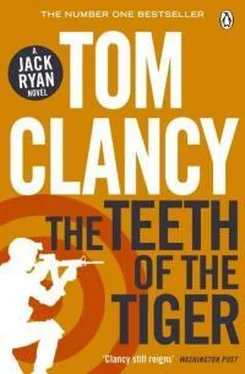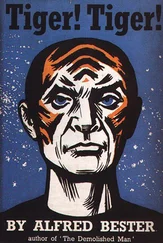“Afghanistan would’ve killed your ass.” Brian was running backward now, the better to observe his struggling brother.
“Probably,” Dominic admitted. “But Afghans don’t rob banks in Alabama and New Jersey.” Dominic had never in his life traded toughness to his brother, but clearly the Marines had made him maintain greater fitness than the FBI did. But how good was he with a pistol? At last it was over, and he walked back toward the plantation house.
“Do we pass?” Brian asked Alexander on the way in.
“Easy, both of you. This isn’t Ranger School, guys. We don’t expect you to try out for the Olympics team, but, out in the field, running away is a nice ability to have.”
“At Quantico, Gunny Honey liked to say that,” Brian agreed.
“Who?” Dominic asked.
“Nicholas Honey, Master Gunnery Sergeant, United States Marine Corps, and, yeah, he probably took a lot of razzing because of his name – but probably not from the same guy twice. He was one of the instructors at the Basic School. They also called him ‘Nick the Prick,’ ” Brian said, grabbing a towel and tossing it to his brother. “He’s one bad-ass Marine. But he said that running away is the one skill an infantryman needs.”
“Did you?” Dominic asked.
“I’ve only seen combat once, and that was just for a couple of months. Mostly, we were looking down at mountain goats who had heart attacks from climbing those fucking hills.”
“That bad, eh?”
“Worse.” Alexander joined in. “But fighting wars is for kids, not sensible adults. You see, Agent Caruso, out in the weeds you also wear sixty-five pounds on your back.”
“That must be fun,” Dominic said to his brother, not without respect.
“Big time. Okay, Pete, what other pleasant things are on the plan of the day?”
“Get cleaned up first,” Alexander advised. Now that he was certain that both were in reasonable physical shape – though he’d had little doubt of that, and it wasn’t all that important anyway, despite what he’d said – they could look into the hard stuff. The important stuff.
“THE BUCKis going to take a hit,” Jack told his new boss.
“How bad?”
“Just a scratch. The Germans are going to short the dollar against the Euro, about five hundred million worth.”
“Is that a big deal?” Sam Granger asked.
“You’re asking me?” Jack responded.
“That’s right. You have to have an opinion. It doesn’t have to be correct, but it has to make some kind of sense.”
Jack Ryan, Jr., handed over the intercepts. “This guy Dieter’s talking with his French counterpart. He makes it sound like a routine transaction, but the translator says the tone of his voice has some nastiness to it. I speak a little German, but not well enough for that sort of nuance,” the young Ryan told his boss. “I cannot say that I understand why the Germans and French would be in any sort of conspiracy against us.”
“It suits current German interests to cozy up to the French. I do not see a long-term bilateral alliance of any sort, however. Fundamentally, the French are afraid of the Germans, and the Germans look down on the French. But the French have imperial ambitions – well, they always have. Look at their relations with America. Kind of like brother and sister, age twelve or so. They love each other, but they can’t get along very well. Germany and France, that’s similar but more complex. The French used to kick their ass, but then the Germans got organized and kicked the French ass. And both countries have long memories. That’s the curse of Europe. There’s a lot of contentious history over there, and they have trouble forgetting it.”
“What does that have to do with this?” the young Ryan asked.
“Directly, nothing at all, but as background maybe the German banker wants to get close to this guy to make a future play. Maybe the Frenchman is letting him think he’s getting close so that the French central bank can score points on Berlin. This is a funny game. You can’t clobber your adversary too hard because then he won’t play with you anymore, and, besides that, you don’t go out of your way to make enemies. All in all, it’s like a neighborhood poker game. If you do too well, then you make enemies, and it’s a lot less fun to live there because nobody will come over to your house to play. If you’re the dumbest at the table, the others will gang up on you in the nicest possible way and steal from you – not enough to hurt you but enough to tell themselves how smart they are. So what happens is that everyone plays a touch under his game, and it stays fairly friendly. Nobody over there is any farther than a general strike away from a major national liquidity crisis, and when that happens you need friends. I forgot to tell you, the central bankers regard everyone else on the continent as peasants. That can include the heads of the various governments.”
“And us?”
“Americans? Oh, yeah. Meanly born, poorly educated – but exceedingly lucky – peasants.”
“With big guns?” Little Jack asked.
“Yeah, peasants with guns always make the aristocracy nervous,” Granger agreed, stifling a laugh. “They still have that class crap over there. They have trouble understanding how badly it holds them back in the marketplace, because the big shots rarely come up with a really new idea. But that’s not our problem.”
Oderint dum metuant, Jack thought. One of the few things he remembered from Latin. Supposedly the personal motto of the Emperor Gaius Caligula: Let them hate so long as they fear. Hadn’t civilization advanced any further than that in the past two millennia?
“What is our problem?” he asked.
Granger shook his head. “I didn’t mean it that way. They don’t like us much – they never have liked us, really – but at the same time they can’t live without us. Some of them are starting to think they can, after the death of the Soviet Union, but if they ever try reality will bite them on the ass hard enough to draw blood. Don’t confuse the thoughts of the aristocracy with those of the people. That’s the problem with them. They really do think that people follow their lead, but they don’t. They follow their own wallets, and the average guy in the street will figure things out all by himself if he has enough time to think it through.”
“So, The Campus just makes money off their fantasy world?”
“You got it. You know, I hate soap operas. Do you know why I hate them?” He got a blank look. “Jack, it’s because they reflect reality so precisely. Real life, even at this level, is full of petty bullshit and egos. It isn’t love that makes the world go ’round. It isn’t even money. It’s bullshit.”
“Hey, I’ve heard cynicism in my time, but–”
Granger cut him off with a raised hand. “Not cynicism. Human nature. The one thing that hasn’t changed in ten thousand years of recorded history. I wonder if it ever will. Oh, sure, there’s the good part of human nature, too: nobility, charity, self-sacrifice, even courage in some cases – and love. Love counts. It counts a lot. But along with it comes envy, covetousness, greed, all the seven deadly sins. Maybe Jesus knew what He was talking about, eh?”
“Is this philosophy or theology?” I thought this was supposed to be the intelligence business, the young Ryan thought.
“I turn fifty next week. Too soon old and too late smart. Some cowboy said that a hundred or so years ago.” Granger smiled. “Problem is, you’re too damned old when you realize it to be able to do anything about it.”
“What would you do, start a new religion?”
Granger had himself a good laugh as he turned to refill his coffee cup from his personal Gevalia machine. “No, none of the bushes around my house burn. The trouble with thinking deep thoughts is that you still have to cut the grass, and put food on the table. And, in our case, protect our country.”
Читать дальше









